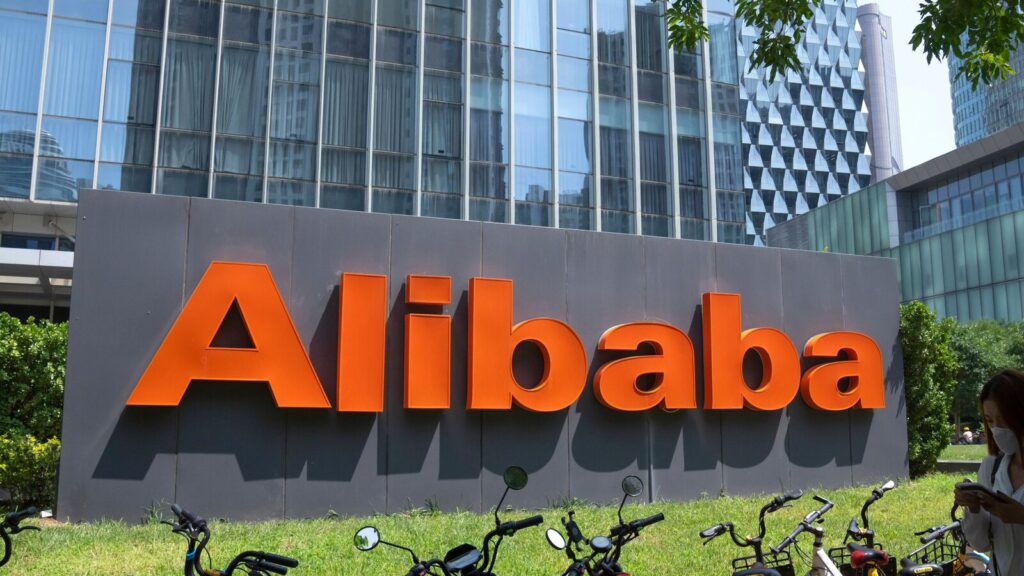Alibaba has seen some early success as it shifts its strategy to prioritize long-term growth over short-term profits, but analysts say increasing competition may make it difficult for the e-commerce giant to regain its former market dominance.
Alibaba has seen some early success as it shifts its strategy to prioritize long-term growth over short-term profits, but analysts say increasing competition may make it difficult for the e-commerce giant to regain its former market dominance.
Once a dominant presence in China's booming e-commerce market, the Hangzhou-based company boasted a staggering 83% market share when it went public in 2014. However, this dominance has eroded significantly, mainly due to an onslaught of increasing competition and a lackluster approach to strengthening its technology and pricing strategies.
Hello! You're reading a premium article! Subscribe now to continue reading.
Subscribe now
Premium Benefits
Premium for those aged 35 and over Daily Articles
Specially curated Newsletter every day
Access to 15+ Print Edition Daily Articles
Register-only webinar By expert journalists
E-Paper, Archives, Selection Wall Street Journal and Economist articles
Access to exclusive subscriber benefits: Infographic I Podcast
35+ Well-Researched Unlocks
Daily Premium Articles
Access to global insights
Over 100 exclusive articles
International Publications
Exclusive newsletter for 5+ subscribers
Specially curated by experts
Free access to e-paper and
WhatsApp updates
Once a dominant presence in China's booming e-commerce market, the Hangzhou-based company boasted a staggering 83% market share when it went public in 2014. However, this dominance has eroded significantly, mainly due to an onslaught of increasing competition and a lackluster approach to strengthening its technology and pricing strategies.
“In a way, we shot ourselves in the foot by not really focusing on creating value for our users,” Alibaba Chairman Joe Tsai said in an April interview with Norges Bank Investment Management CEO Nikolai Tangen on the fund's YouTube channel.
E-commerce giant Alibaba said in February that it is “revitalizing Taobao and the Tmall Group,” and has strategically focused on price competitiveness and invested in technology upgrades to improve its user interface. In May, Alibaba announced that its e-commerce platform, Taobao, had implemented its “biggest update” in seven years to improve customer experience for the 618 Shopping Day sale campaign, which runs from late May to mid-June.
Taobao also canceled the pre-sale process for the 618 shopping festival, which many consumers found too complicated to buy, and upgraded the layout of its website to make it easier for customers to buy and sell products.
Nomura analysts Jialong Shi and Rachel Guo said Alibaba is now “prioritizing growth over profitability,” which could come under pressure, and they cut some of the company's profit forecasts.
Some of those growth strategies appear to be showing signs of progress: Revenue from Alibaba's China e-commerce unit, Taobao Tmall Group, rose 4% in the fourth quarter ended in March, up from 2% in the December quarter. The unit accounted for about 42% of Alibaba's group revenue.
“Fundamentally, we're back on track to growth, and that's a very important message,” Alibaba Chief Financial Officer Toby Xu told analysts after the company reported earnings in May.
“We've seen some initial positive developments as strategic reinvestment leads to a re-accelerated growth,” said Alicia Yap, an analyst at Citigroup.
While the current strategy may have excited many, analysts warn that competitors such as U.S.-listed PDD, which runs an e-commerce platform in China, TikTok owner ByteDance and online short-video company Kuaishou Technology are making it harder for giants like Alibaba and JD.com to gain market share.
“Alibaba is [strategy shifts] “PDD is performing better than it has in the past,” said Shawn Yang, senior research analyst at Arete Research, “but it's also clear that PDD is still prominent in the first quarter results.”
PDD's first-quarter revenue more than doubled to 86.8 billion yuan ($11.98 billion), accounting for about 40% of Alibaba Group's revenue.
Alibaba's market share has been steadily declining, falling from 83% in 2014 to 39.5% today, according to data from market research firm Insider Intelligence.
By comparison, PDD-owned Pinduoduo's market share grew to 16% from 11% in 2020. JD.com's market share fluctuated between 16% and 18% during the same period. Data from ByteDance and Kuaishou was not available.
“Investors may still be skeptical of Alibaba's ability to turn around its China e-commerce business after losing significant market share over the past few years,” Nomura analysts Shi and Guo said.
Write to Tracy Qu at tracy.qu@wsj.com.
Get all your corporate news and updates with Live Mint. Download the Mint News app for daily market updates and live business news.


